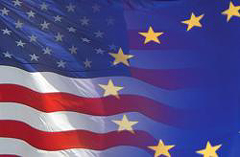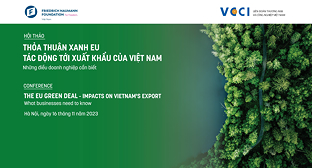U.S. Official Lobbies for Trans-Atlantic Trade Pact
27/03/2014 12:00

BRUSSELS — Completing a landmark trans-Atlantic trade agreement could help Europe wean itself from reliance on Russian energy supplies, the United States trade representative, Michael Froman, has said.
Mr. Froman made his comments here on Saturday before a visit by President Obama that is scheduled to start on Tuesday evening, with a summit meeting of European Union and United States officials set for the following day. The Transatlantic Trade and Investment Partnership, now being negotiated, is among the items Mr. Obama is set to discuss with Herman Van Rompuy and José Manuel Barroso, the union’s top officials.
Mr. Obama’s visit, scheduled before the crisis erupted in Crimea, will be his first to Brussels since he took office. Energy is expected to be a key topic at the meeting because of the heightened tensions with Russia.
Russia has cut natural gas supplies to Europe a number of times in the past decade during disputes with Ukraine and other transshipment countries, prompting severe shortages in parts of the union.
Encouraging the export of American natural gas to Europe “is yet another rationale for completing” the trade talks, Mr. Froman told the Brussels Forum, a conference organized by the German Marshall Fund of the United States.
Mr. Froman suggested that if a far-reaching trade agreement were in place, it would be a good deal easier for the Department of Energy to grant licenses to companies wishing to export shale gas from the United States. “If you’re a free trade agreement country, those licenses are deemed to be in the public interest,” Mr. Froman said during a panel discussion with the European Union trade commissioner, Karel De Gucht.
Earlier on Saturday, Mr. Froman told reporters that “recent developments just underscore the importance of the trans-Atlantic relationship,” adding, “From both a strategic and economic perspective, the rationale for the T.T.I.P. could never be stronger.”
Although European and American officials trumpet the importance of the trans-Atlantic alliance, there are thorny elements in the relationship. The last time the two sides held a similar meeting, in Washington in November 2011, the United States was concerned that European leaders’ insistence on austerity was a threat to the global economy.
More recently, relations were soured by National Security Agency spying, including tapping of the cellphone of the German chancellor, Angela Merkel.
The start of negotiations for a trade deal was announced with great fanfare last year, and European officials, eager to find ways of stoking confidence in the region’s beleaguered economy, expressed optimism about reaching an agreement by 2015. Since then, in the course of four rounds of talks in Brussels and Washington, progress has been slower than many officials had hoped.
There are widespread concerns among Europeans that any agreement with the United States would jeopardize environmental and food safety standards. Some American companies are concerned that protections for investors will not be part of a deal. Even in the relatively straightforward area of tariff reductions, the two sides have yet to reach agreement on how various industrial sectors should be treated.
Another round of talks is expected to be held in Washington before summer.
There are many companies willing to export American natural gas. There also is demand in union member countries like Poland and Lithuania for American energy as part of efforts to break their reliance on Russian sources. Russia currently supplies about a quarter of the union’s natural gas needs, but some former members of the Soviet bloc are almost entirely dependent on Russian energy.
Yet a number of American manufacturers doubt the wisdom of the United States’ exporting cheap shale gas.
“We’re not trying to block anything,” Heinz Haller, president of Dow Europe, Middle East and Africa, told a separate panel at the Brussels Forum. But he suggested that exporting shale gas could raise American energy prices at a time when “the U.S. needs to repatriate a lot of industry.”
“There is nobody who is saying we should not have free trade in this, but only when it makes economic sense,” Mr. Haller said.
Even so, there are 28 gas export permits awaiting approval by the Department of Energy. Approvals typically take three or four months, according to Nelson W. Cunningham, a former White House adviser who now is president of McLarty Associates, a consulting firm whose clients include energy companies.
In an interview, Mr. Cunningham said that even without a trans-Atlantic trade pact in place, export approvals should be accelerated to help Eastern Europe secure non-Russian sources of energy.
He said the United States authorities should consider allowing companies “to jump the queue” for export licenses if they could show the gas would go to Eastern Europe.
Source: NY Times
Các tin khác
- Vietnam and Southeast Asian Solar Firms Face US Anti-Dumping, Anti-Subsidy Probe (03/05/2024)
- Infrastructure development creates momentum for exports to "neighboring" markets (03/05/2024)
- Seaports increase services to attract goods (03/05/2024)
- Chinese EV makers risk tougher duties over failure to cooperate with EU probe (03/05/2024)
- RoK burgeoning market for Vietnam’s agro-forestry-fisheries exports (03/05/2024)
 Home
Home
 About Us
About Us




















